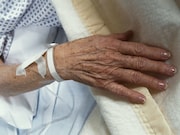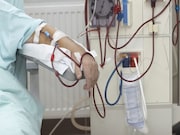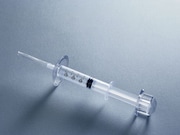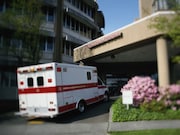Survival Poor for Elderly Admitted to Long-Term Acute Care Setting
Among older Medicare beneficiaries admitted to LTAC, more than one-third died in an inpatient setting
Rates of Palliative Care Rising for Inpatients With ESKD on Dialysis
However, significant racial disparities exist and persist across all hospital subtypes
Radiologists Performing More Paracenteses, Thoracenteses
2004 to 2016 saw increase in paracentesis, thoracentesis procedures performed by radiologists
Mobile Stroke Unit Speeds Access to Intraarterial Thrombectomy
Prehospital management on MSU speeds access versus EMS, but difference attenuated since 2014
Short-Term Exposure to PM10 and PM2.5 Affects Mortality
Risk for daily all-cause, cardiovascular, respiratory mortality up with short-term exposure
Advertising Can Promote Interest in Health-Related Research
Short-term interest significantly increased for those viewing large TV monitors in ED waiting room
Racial, Ethnic Disparities in Care for Preemies Have Narrowed
Disparities have narrowed in specific care practices for African-American, Hispanic versus white infants
Flu Vaccine Tied to Better Long-Term Outcomes in Elderly ICU Survivors
Those who are vaccinated have lower risk for stroke, death in year following ICU discharge
One-Third of Physicians Will Take 10+ Years to Pay Off Debt
Survey shows that taking extra shifts is one strategy to help doctors pay off medical school debt
Method to Calculate Central Line Infections Flawed
Counting multiple concurrent central lines may help account for hospitals with patients with higher acuity of care



















